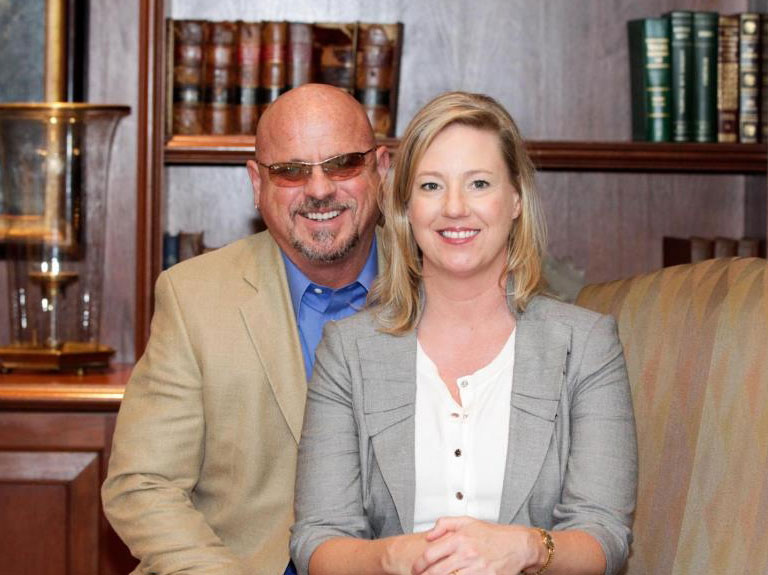A few months ago, Kelly Burton, dropped her husband, Eric, off at the airport on his way to visit family in Arizona and drove away. It sounds ordinary, but for the couple, it represented a life-changing milestone made possible through a smartphone app.

Eric Burton is blind. A cutting-edge technology helped restore a level of independence to his life that retinitis pigmentosa (RP), a rare, degenerative eye disease, had progressively stolen. How it works: Using a smartphone app and a phone’s camera, the technology connects people with low or no vision to highly trained, remotely located agents. The technology evolved from an AT&T Foundry project that initially emerged as specialized glasses to support the assistive technology.
Diagnosed with RP at age 5, Eric slowly lost his vision over the next three decades. “It is easy to fool yourself when you are blind,” Eric wrote in an account of his experience with the technology. “You learn to count steps, you learn routes, where things are and slowly you can in fact expand your world, but that world is limited to doing a task over and over again.” But the technology changed that.
It all began with an AT&T employee townhall that Kelly attended, where the new app was featured. Kelly, a lead relocation specialist in Dallas, who has been with AT&T for 32 years, immediately saw the potential to enhance her husband’s life. It took a while to figure out access to the technology … and to overcome Eric’s initial skepticism. Both were accomplished in April 2018.
A trip to the grocery store – something he hadn’t done alone in two decades – showed Eric the possibilities. Using the app, an agent summoned Eric a Lyft, introduced him to the driver and later guided Eric through the store. “The driver was amazed as I explained the technology,” Eric wrote. “I asked the driver if he had heard of the Google Driverless Car. I then told him to think of me as the Self-Driving Blind Guy.”
“I asked the driver if he had heard of the Google Driverless Car. I then told him to think of me as the Self-Driving Blind Guy.”
- Eric Burton
The experience opened up a new world for Eric, that included a job advocating for the technology. Even today, everywhere he goes, he shares how it works. This also led to an epiphany for Kelly. “I was wrapped up in the technology and the idea that it created some great adventure for Eric – and that’s not it at all,” she said. “As Eric said to me, ‘I’m not just getting to go somewhere. I need to go somewhere. It’s not an adventure. It’s about living my life.’ “
While Kelly also serves as the national president of Ability, AT&T’s external facing resource group which supports a variety of diseases and disabilities, she had never widely discussed Eric’s condition at work. Ability has more than 4,400 members across eight chapters nationwide, dedicated since 1989 to creating a culture of understanding, awareness, advancement, and advocacy for individuals with disabilities. “I realized I should be talking about this experience,” Kelly said. “This assistive technology is really what gave us purpose, optimism and hope. Eric is larger than life, a big personality and he can really be himself again.”
(Learn more about Ability at www.abilityerg.org.)
As for Kelly and Eric, the technology shifted the dynamics of their relationship, too. “I’m now a retired seeing eye girl,” Kelly said. Where their time together had once focused on logistics and navigation through daily life, they instead seek out concerts and other activities to enjoy.
“I keep waiting for the moment where it’s passé and we’re over it but that hasn’t happened,” Kelly said. “It’s just the opposite. We’re still on fire with it.”

